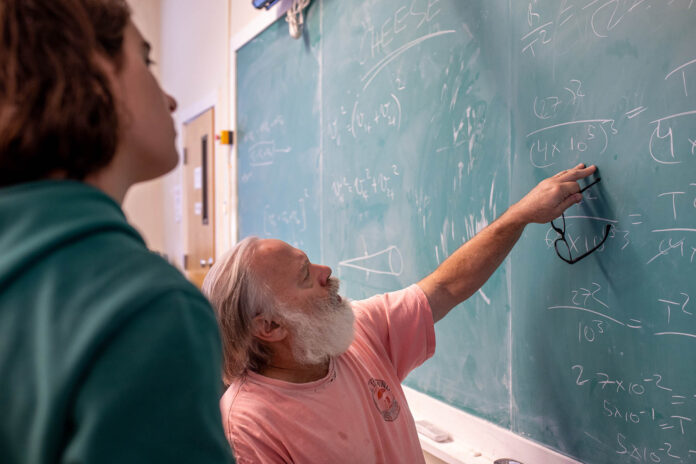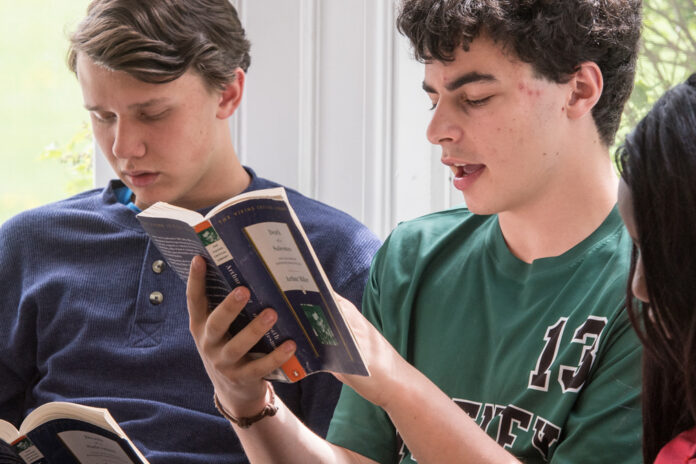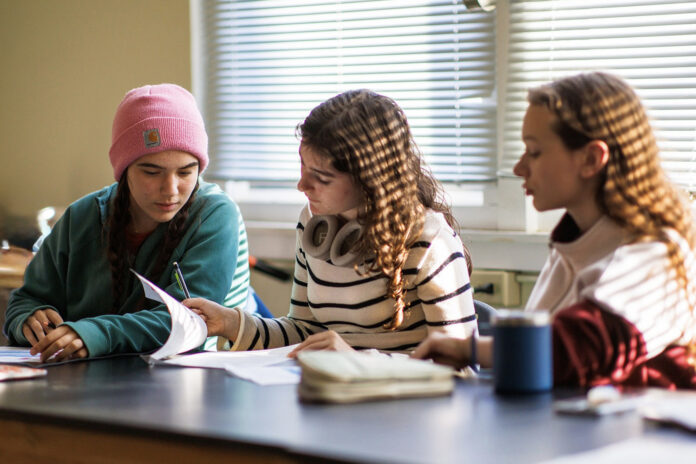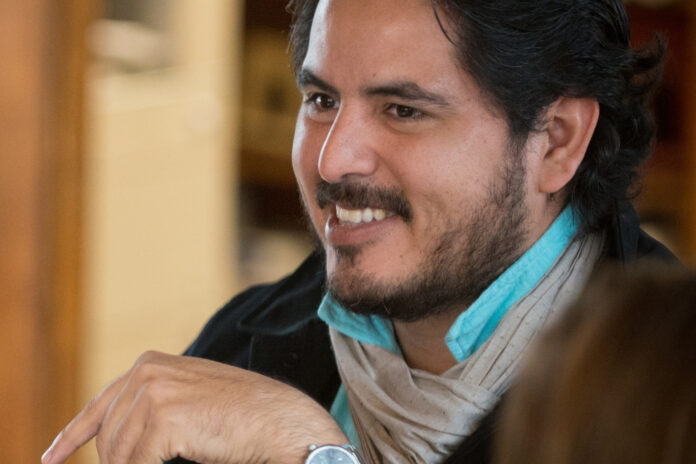The study of science at Putney revives, instills and encourages curiosity about the natural world by equipping students with the habits of mind needed to ask and answer questions using the scientific method. Courses introduce fundamental biological, chemical, and physical principles through active inquiry, experimentation, direct instruction, model building, field trips, and exercises in problem-solving. Advanced classes and tutorials in the sciences are available and common. Upon graduation, students will have developed an understanding of essential methods and content sufficient for lifelong learning, responsible citizenship, and for further study of science at the university level.
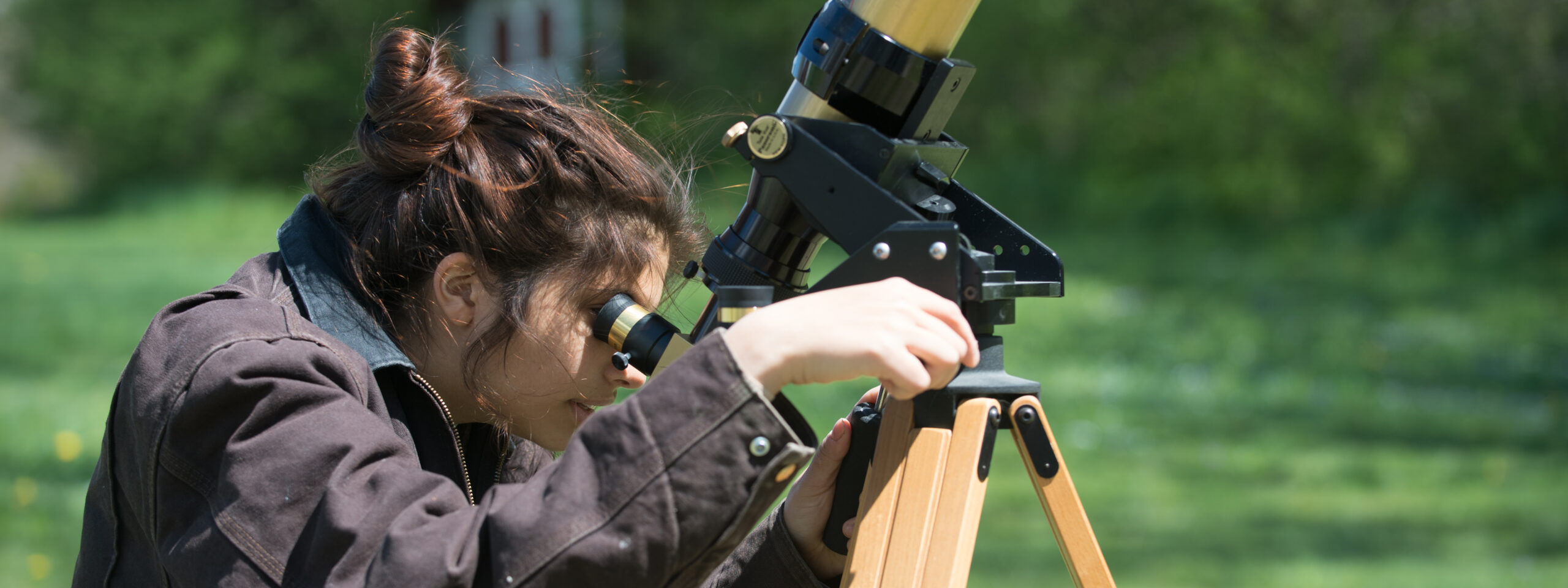
The Putney Difference
Putney students have the option to take classes that meet basic requirements, and receive a strong, well-rounded science education that not only prepares them for the next step, but instills a sense of wonder.
We want our kids to come through our science curriculum still excited to know that there’s so much more to be in awe of; to be curious about the world and learning how it works.
— Dawn Zweig, Science Department Chair and Science Teacher
With that in mind, Putney provides the opportunity for students to go beyond a traditional education and deeply explore a specific field or topic of science, whether it’s through electives, independent studies, project weeks, or senior exhibitions. From two photography students working to identify the most important chemical variable during the development process in a dark room, to a student who designed his own field research in aquatic population dynamics, measuring the goldfish accidentally introduced to the pond on campus, (around 450, if you’re wondering), teachers are eager to support students’ inquiries with time, space, resources and guidance that puts the scientific process to work.
Understanding What You Can’t See
Science Teacher Rosi Olivan Pliego strives to create opportunities for students to watch something happen before their eyes, delve into the molecular connections that they can’t see, and explore the historical and cultural implications of what they’re learning.
Project Week: Visualizing Airflow
Gerrit has always been interested in airplanes and how they work. He combined physics and photography to visualize airflow during a project week.
Bringing Chestnut Trees Back to Putney
From a project week to a 20-year study: students are engaged in real world, graduate level research, working with the American Chestnut Foundation to help bring the endangered trees back to Putney’s forests — and beyond.
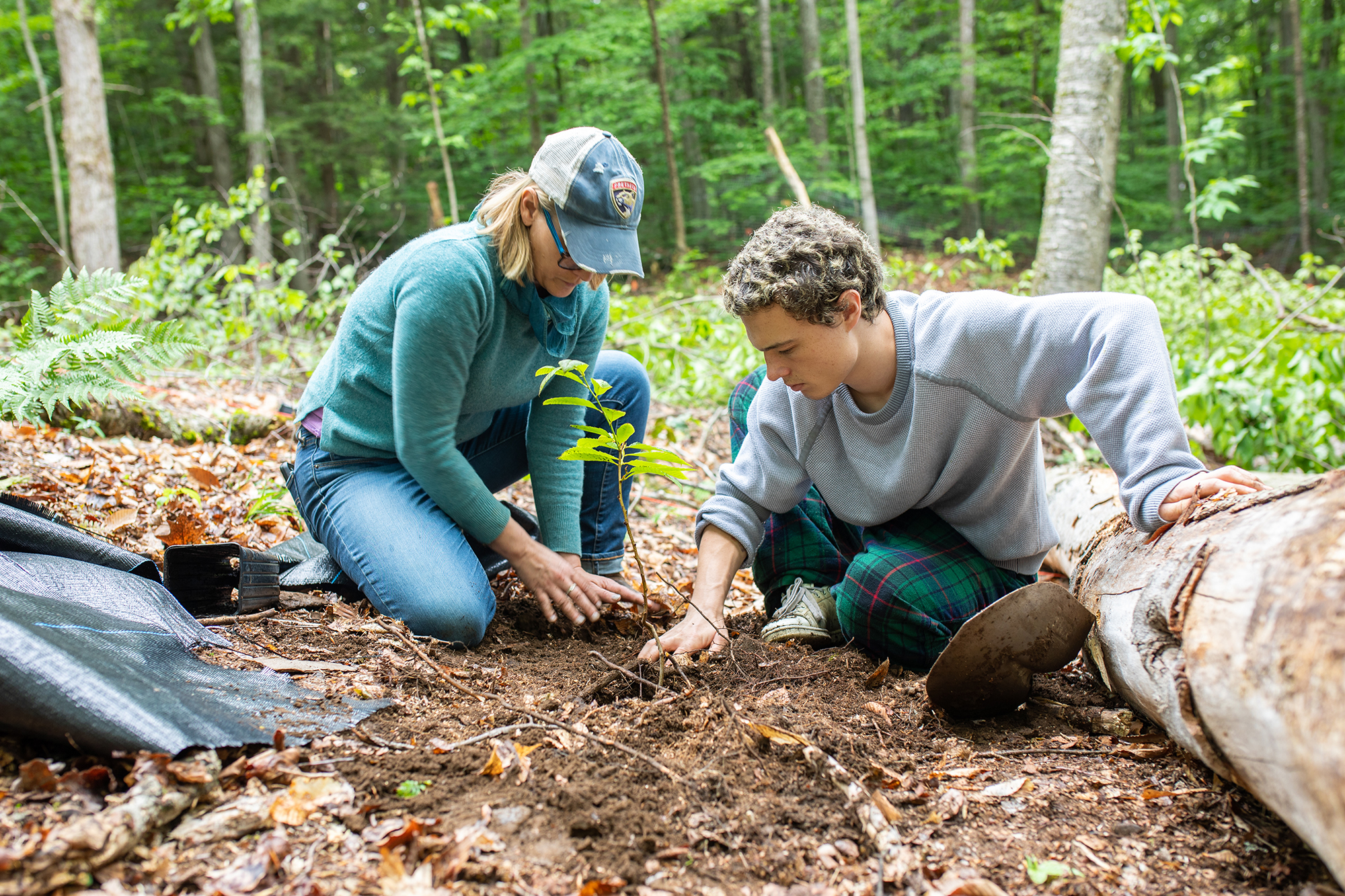
Meet Our Faculty
Science Courses
- Advanced Chemistry: Color Extraction
- Anatomy and Physiology 1
- Anatomy and Physiology 2
- Advanced Astronomy
- Biodiversity and Conservation Ecology
- Bioethics in Modern Science
- Chemistry 2
- Chemistry and Microbiology
- Complex Systems: Agroecology
- Engineering and Design
- Environmental Philosophy
- Field Ornithology
- Independent Topics in Science: Life Science
- Independent Topics in Science: Physical Science & Engineering
- Introduction to Astronomy
- Introductory Physics
- Molecular Genetics 1: Classical Genetics & Biochemistry
- Molecular Genetics 2: Modern Genetics and Organic Chemistry
- Physics 2


